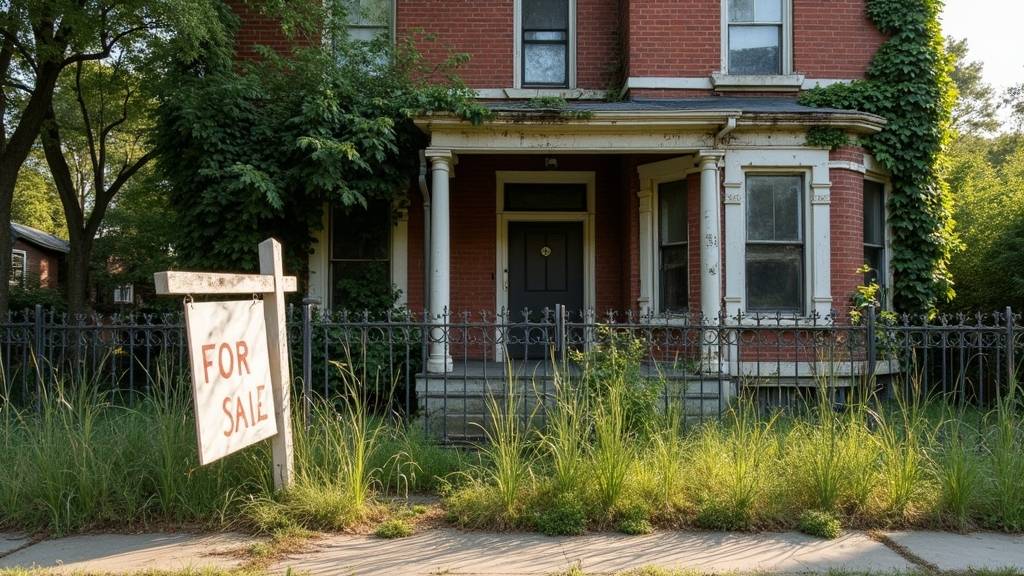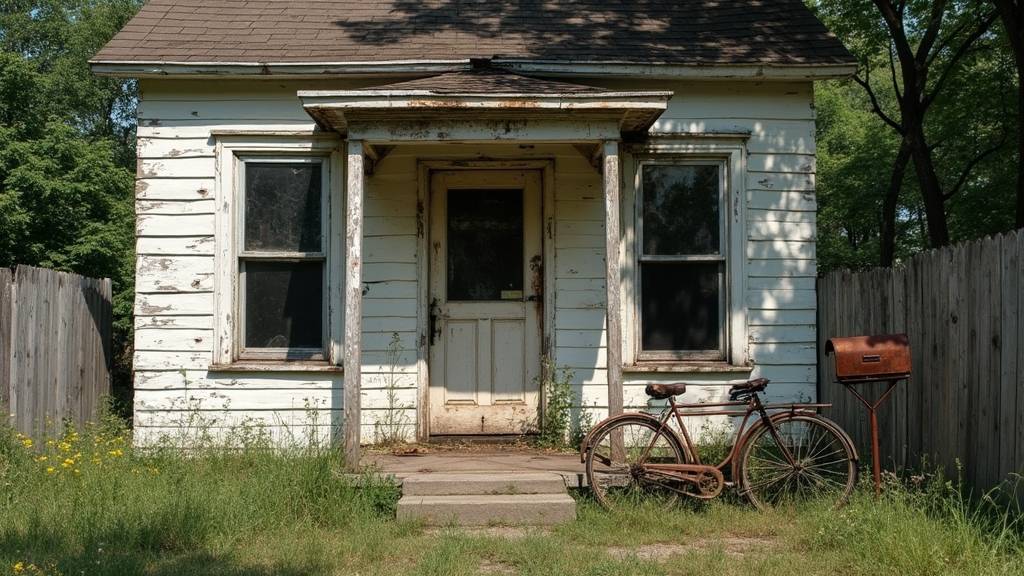Selling a home after someone dies can be confusing, especially when the house is in probate. Many families want to move forward quickly, but legal steps must be followed. One big question is whether you can sell a house in probate if there is no executor.
This situation can quickly become stressful. Without an executor, no one has the legal authority to sign documents or transfer ownership.
The process can stall, making it hard for heirs to get what they need. You cannot sell a house in probate without an executor, because only a court-appointed representative can handle the sale.
The good news is that the court can appoint someone to take charge. There is a clear process for moving forward if no executor is named. This blog will guide you step by step so you can solve this problem and move ahead with confidence.
Key Takeaways
- A house in probate cannot be sold until the court appoints an executor or administrator to represent the estate.
- If there is no executor named in a will, the court will appoint an administrator before any property sale can occur.
- Only the court-appointed estate representative (executor or administrator) has the legal authority to sell probate property.
- Attempting to sell probate property without court approval and a representative is not legally valid and can delay the process.
- Court delays in appointing a representative will postpone any real estate transactions until authorization is granted.
Understanding the Probate Process

Probate is the legal process for handling a person’s property after death. You start by filing a petition with the probate court. If there is no will, the court decides who inherits the property.
The court identifies and values all assets, including homes. Creditors must be notified, and any debts or taxes must be paid first. Only after these payments can the heirs receive their share.
The probate court supervises each step to ensure everything is legal. If you follow these steps, you can manage the estate smoothly. Proper understanding helps if you wish to sell the property later. Knowing the probate process can also help you navigate potential legal or procedural challenges effectively.
The Role of an Executor in Probate
An executor acts as the court’s representative during probate. This person manages and settles the estate according to the law. Executors make sure the estate is handled properly. An executor must identify and protect all property and assets. Property valuation is needed to find the current value of real estate and other items. This value affects estate taxes and the total estate worth. If you are the executor, you must notify creditors and pay any debts. You also have to file tax returns for the estate.
Only after all bills and taxes are paid can you give assets to heirs. Executors ensure all legal steps are followed during probate. If you follow these steps, you help protect the estate’s interests. Proper actions also help avoid legal problems for the estate. Checking for property liens early in the process can prevent delays or legal issues during probate. Additionally, understanding probate laws in your jurisdiction can ensure compliance and smooth estate resolution.
What Happens When There Is No Executor

If there is no executor, the court will choose someone to handle the estate. This person is called an administrator. The probate process cannot start until the court makes this appointment.
A seller’s market can influence the speed of estate settlement, as high demand for properties may lead to quicker sales once the estate is ready to sell. The administrator is usually a close family member or someone with an interest in the estate. If this does not happen quickly, important probate tasks will be delayed. Creditors and beneficiaries must wait longer for payments and distributions.
The court will watch the process more closely when there is no executor. Every major decision needs the judge’s approval. This extra step can increase costs and slow down the estate’s settlement.
Who Can Initiate the Sale of a Probate Property
A court-appointed administrator is the only person who can start the sale of a probate property. No sale can happen unless the court names you as the administrator. This rule ensures that only the right person acts on behalf of the estate. The administrator can list the property and handle offers.
He or she negotiates the final terms and signs contracts. The administrator must also follow rules about estate taxes and funding trusts if needed. If you are a beneficiary or an heir, you cannot sell the property yourself. Beneficiaries can watch the process and receive money from the sale. Heirs may inherit, but only if there is no will.
These roles and rules protect everyone involved. If you ignore them, you risk legal problems. Always follow court orders and probate laws. Understanding the probate process can help ensure a smooth sale. Additionally, working with experienced professionals like trusted cash home buyers can simplify the process and ensure compliance with all legal requirements.
Appointing an Administrator in the Absence of an Executor

If a will does not name an executor, the court will appoint an administrator. This person manages the estate in place of an executor. The process ensures the estate is handled properly.
An interested person can ask the court to become the administrator. The court usually prefers close family members for this role. If there are disputes, the court may consider them when choosing an administrator.
Once appointed, the administrator must list all assets and pay any debts. This person also prepares any property for sale. The administrator has the same legal power as an executor.
Transparency and following the law are very important in this process. If you do not follow the rules, conflicts may arise. Clear communication helps ensure a fair distribution of assets. Additionally, understanding the probate process can help streamline the sale and transfer of inherited property. Knowing the legal requirements for estate administration can prevent delays and legal issues during the sale.
Court Approval Requirements for Property Sales
The court must approve any property sale during probate. You must get permission from the probate court before selling the house. This ensures the property is sold legally.
The process starts by filing a petition with the court. The petition should include a recent property appraisal by a licensed appraiser. The court uses this to check if the price matches the fair market value. Conducting a thorough title search can also help confirm the property’s legal status and any liens or claims that need to be addressed during the sale.
If the court has concerns, it may hold a hearing. Interested parties can object at this time. If there are no issues, the court will give a sale order.
The sale proceeds must cover all estate debts and taxes. The court will not approve the sale if this condition is not met. Properly managing estate finances is essential to ensure the sale goes smoothly and remains valid. If you skip these steps, the sale could become invalid.
Differences Between Testate and Intestate Estates
You need to distinguish between testate and intestate estates, as the presence or absence of a valid will determines both the appointment of a personal representative and the distribution process. In testate cases, the court typically honors the decedent’s named executor and follows the will’s directives, while intestate estates require court appointment of an administrator and distribution according to statutory inheritance rules.
Understanding these distinctions is essential for managing property sales during probate when no executor is in place. Additionally, complications such as legal hurdles or estate issues can further impact the sale process in probate situations without an appointed executor. Ensuring compliance with local regulations and registration requirements is critical to avoid delays or legal complications when selling the property.
Will vs. No Will
A will is a legal document that states who inherits property after death. If there is a will, it usually names an executor and lists property heirs. Without a will, state law decides who gets the property.
If the person had a will, the executor handles the sale of the house. The process is usually faster and simpler with a will. The will guides the probate court and reduces disputes.
If there is no will, the court must appoint an administrator. The court also decides who inherits the house. This process can take longer and may cause delays in selling the property.
Knowing if there is a will is important before selling a house in probate. It affects how quickly and smoothly the process goes. If you are unsure, check for a will before taking any steps.
Appointment of Personal Representative
A personal representative handles the estate during probate. The court must appoint this person before any estate property can be sold. The process differs based on whether there is a will.
If there is a will, the court usually approves the person named as executor. The executor’s power comes from the will itself. This can make the probate process faster.
If there is no will, the court appoints an administrator. Usually, a close family member is chosen. The court may need to review different requests for this role.
Inheritance Rights and Process
Inheritance rights depend on whether the estate has a will or not. If there is a will, assets are given out as the will says. If there is no will, state law decides who gets what.
Estate taxes must be paid before anyone receives assets. If the personal representative does not pay these taxes, they may be personally responsible. Proper payment of taxes protects everyone involved.
Probate fraud can happen in both types of estates. Forged wills or fake heir claims are common problems. If you notice suspicious transfers or hidden assets, report them to the court.
Here is a simple comparison:
| Aspect | Testate Estate (With Will) | Intestate Estate (No Will) |
|---|---|---|
| Asset Direction | By will | By state law |
| Probate Fraud | Forged wills, improper distributions | False heir claims, hidden assets |
| Estate Taxes | Paid before distribution | Paid before distribution |
If you know these rules, you can help protect your inheritance. Always follow legal steps during probate. If you have doubts, ask a lawyer for guidance.
Timeline for Selling a Probate Property
Selling a probate property usually takes several months or more. The process follows strict probate laws and court rules. Each step must be completed before the sale can happen.
You must first ask the probate court to open the estate. Then, all assets, including the property, need to be identified and valued. If the court asks, you may need to get an appraisal and official paperwork.
Heirs and creditors must be notified before moving forward. Estate taxes must be calculated and paid if they apply. The court will only allow the sale after these steps are finished.
Delays can happen because of court schedules, tax issues, or disagreements among heirs. If everything goes smoothly, the process moves faster. If problems arise, it could take much longer. Additionally, understanding legal requirements and proper documentation can help streamline the sale.
Legal Responsibilities of the Estate Representative
As the estate representative, you assume legal authority to manage and transfer the decedent’s real property during probate. You must secure court approval, maintain fiduciary duties, and ensure full compliance with statutory notice and disclosure requirements throughout the sale process. Missteps in these obligations can expose the estate to legal challenges and personal liability.
Additionally, understanding the local market conditions and available options, such as cash home sales, can facilitate a smoother transaction. Working with a local team experienced in Fair offers and transparent dealings can help navigate these responsibilities effectively and reduce potential complications.
Authority of Estate Representative
When a house goes through probate without an executor, the court names an estate representative. This person is often called an administrator. The administrator has the legal power to handle the deceased’s assets.
An estate representative can collect assets, pay debts, and sell property if needed. Every action must follow the court’s directions. If instructions are ignored, there could be legal problems.
Below is a table with the main authorities of an estate representative:
| Authority | Legal Basis | Impact on Estate Settlement |
|---|---|---|
| Asset Control | Letters of Administration | Allows management of assets |
| Debt Resolution | Probate Code | Pays creditors |
| Property Disposition | Court Approval | Allows sale or transfer of assets |
Duties During Property Sale
When selling estate property, the estate representative must follow specific duties. The main tasks are to secure, value, and get approval to sell the property.
The representative needs to get a proper appraisal to set the property’s value. If required, he or she must get probate court approval before listing the property for sale.
All heirs and other interested parties must receive legal notice of the sale. The representative must negotiate offers and handle disclosures as the law requires.
Each contract must follow probate court rules. After the sale, the representative must record the proceeds, pay outstanding debts, and submit required taxes.
If the court requests, the representative must provide clear records and reports. Careful recordkeeping is necessary at every step of the sale.
Steps to Take Before Listing a Probate Property
Before you list a probate property, you must complete certain legal and administrative steps. These actions help ensure the sale is legal and smooth. Following them can prevent later problems.
First, get court approval to sell the property. Probate rules usually require this permission before any sale. If you skip this step, the sale may not be valid.
You must find out the property’s value through a certified appraisal. This helps set a fair price and meets legal requirements. You also need to identify and list all assets in the estate.
Check if there are estate taxes or probate fees to pay. If you owe any, pay them before you list the property. Outstanding fees can block the sale process.
Gather key documents like the will, death certificate, and letters of administration. These prove you have the right to sell. Keep these papers ready for buyers and the court.
Make sure the property has insurance during the probate process. Do a title search to find and fix any title problems. If title issues exist, resolve them before listing the property.
Inform all heirs, creditors, and the probate court about your plan to sell. This notice is required by law in many cases. It allows anyone with a claim to respond before the sale moves forward.
Potential Delays When No Executor Is Appointed
Without an appointed executor, you’ll encounter significant delays due to the court appointment waiting period and postponed property sale authorization. The probate court must formally designate an administrator before any legal transactions proceed, creating a bottleneck in the timeline. These procedural setbacks can stall your ability to market or transfer the property, impacting overall estate resolution.
Court Appointment Waiting Period
If the court has not appointed an executor, there is a required waiting period before probate can continue. You must wait for the court to process and approve a petition for an executor or administrator. No estate actions can move forward until this appointment is official.
During the waiting period, tasks such as valuing assets or paying creditors cannot begin. Property sales and asset distributions are also on hold until the court makes a decision. If the process is delayed, the estate remains in limbo.
Delays may last from a few weeks to several months, depending on the court’s schedule. Disputes among heirs or missing paperwork can make the process take even longer. Complex estates usually require extra time for administration.
The table below shows how different factors affect probate timing:
| Factor | Impact on Probate Timeline |
|---|---|
| Court schedule | Delays appointment process |
| Disputed petitions | Prolongs waiting period |
| Estate complexity | Increases administrative time |
| Incomplete paperwork | Causes further probate delays |
Property Sale Authorization Delays
Property sale authorization cannot proceed if the court delays appointing an executor. No property sale can start or finish without this approval. The process must stop until the court names an executor.
Banks and title companies will not release funds or approve transactions without a court-appointed executor. Estate taxes may go unpaid, which could mean extra penalties. If there is no oversight, the risk of probate fraud increases.
You may not be able to list the property for sale or take offers until you have legal authority. Negotiations with buyers will likely stall due to unclear ownership. Always wait for court authorization to reduce legal risks.
How Heirs and Beneficiaries Are Involved
Heirs and beneficiaries help decide what happens to the house during probate. They must work together to make property decisions. If there is no executor, they take a more active role.
The court may need their agreement to appoint an administrator. This person will oversee the sale of the house. If everyone agrees, the process moves faster.
A formal property appraisal is usually required by the court. This helps set the right sale price and calculate estate taxes. Estate taxes must be paid before sharing any money from the sale.
Working With Probate Attorneys and Real Estate Agents
You’ll need to engage a probate attorney with demonstrated expertise in estate administration to navigate legal complexities efficiently. It’s critical to coordinate closely with a real estate agent who understands probate sales, ensuring compliance with court requirements and optimizing market value. Strategic collaboration between these professionals streamlines the transaction and mitigates procedural risks.
Choosing Experienced Probate Attorneys
You should pick a probate attorney who understands probate sales without an executor. The right attorney will know how to handle court steps and estate rules. If you choose someone with experience, you can avoid mistakes and delays.
A good probate attorney will explain complex laws and protect your interests. They can handle any problems that come up during the sale. If you want a smooth process, make sure your attorney has done similar cases before.
When choosing an attorney, look for experience in estate planning and local probate laws. Check if they have strong skills in solving disputes and negotiating. If they offer clear fees and have good reviews, you can trust their service.
Coordinating With Real Estate Agents
Coordinating with real estate agents is important when selling a house in probate without an executor. You need your probate attorney and a real estate agent to work together. This helps make sure you follow all probate rules and local laws.
A probate attorney explains your legal rights and prepares the needed documents. The attorney can also explain tax issues that may come from the sale. If you have questions about authority, the attorney gives advice.
A real estate agent with probate experience can market the house and work with buyers. The agent should know how probate sales work in your area. This helps avoid problems and keeps the process moving.
If both experts share information, you can avoid delays and mistakes. Good teamwork protects the estate’s value for the heirs. A careful approach makes probate property sales easier to handle.
Tips for a Smooth Probate Property Sale
Probate property sales can be simple if you follow the right steps. You need to focus on legal rules and careful planning. This makes the process faster and avoids common mistakes.
A probate attorney helps explain laws and keeps everything legal. If you get a certified appraiser, you will know the property’s true value. Notifying all heirs early can prevent many arguments.
Court approval is often needed before you can sell or list the property. You should keep clear records of every step and document all talks. If you follow these tips, your probate sale will go smoothly.
Conclusion
If you need to sell a house in probate, you must wait for the court to appoint an executor or administrator. Without this legal authority, no one can lawfully transfer ownership or complete a sale. If the process seems complex, working with specialists can make it easier.
If you want a quick and simple sale, Align Real Estate Solutions can help. We buy houses for cash, even those in probate. Our team works closely with probate attorneys to ensure a smooth transaction.
If you are ready to sell or have questions about probate sales, contact us today. We are here to help you every step of the way. Let Align Real Estate Solutions guide you through your probate property sale.
Author
-

Zach Koops is co-founder and Real Estate Success Manager at Align Real Estate Solutions, serving homeowners across Virginia since 2024. With a passion for real estate and a heart for people, Zach has built his career around helping sellers navigate tough situations—foreclosure, inheritance, relocation, repair-overload—with clarity and compassion. He’s known for being straightforward, steady under pressure, and deeply invested in relationships. Outside of work, he spends his time as a husband and father, enjoys the outdoors in Shenandoah Valley, loves singing on stage, and constantly seeks growth through reading and new experiences.









